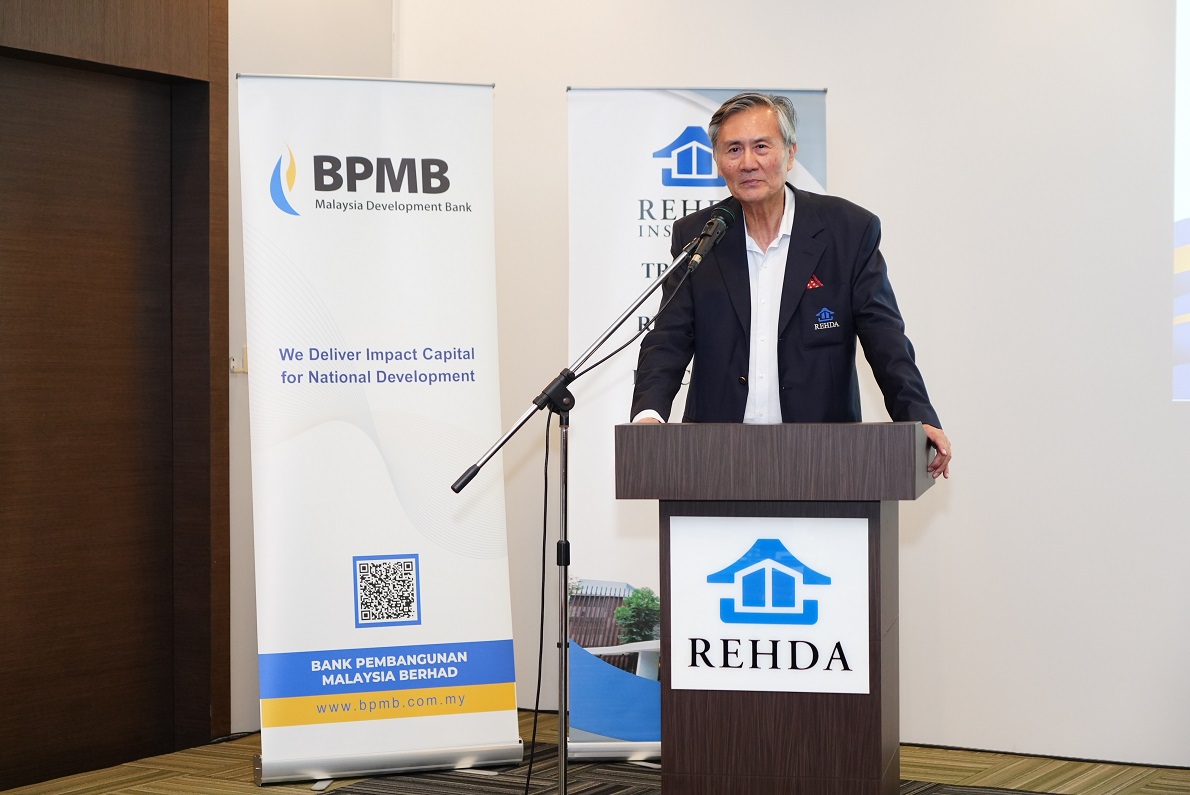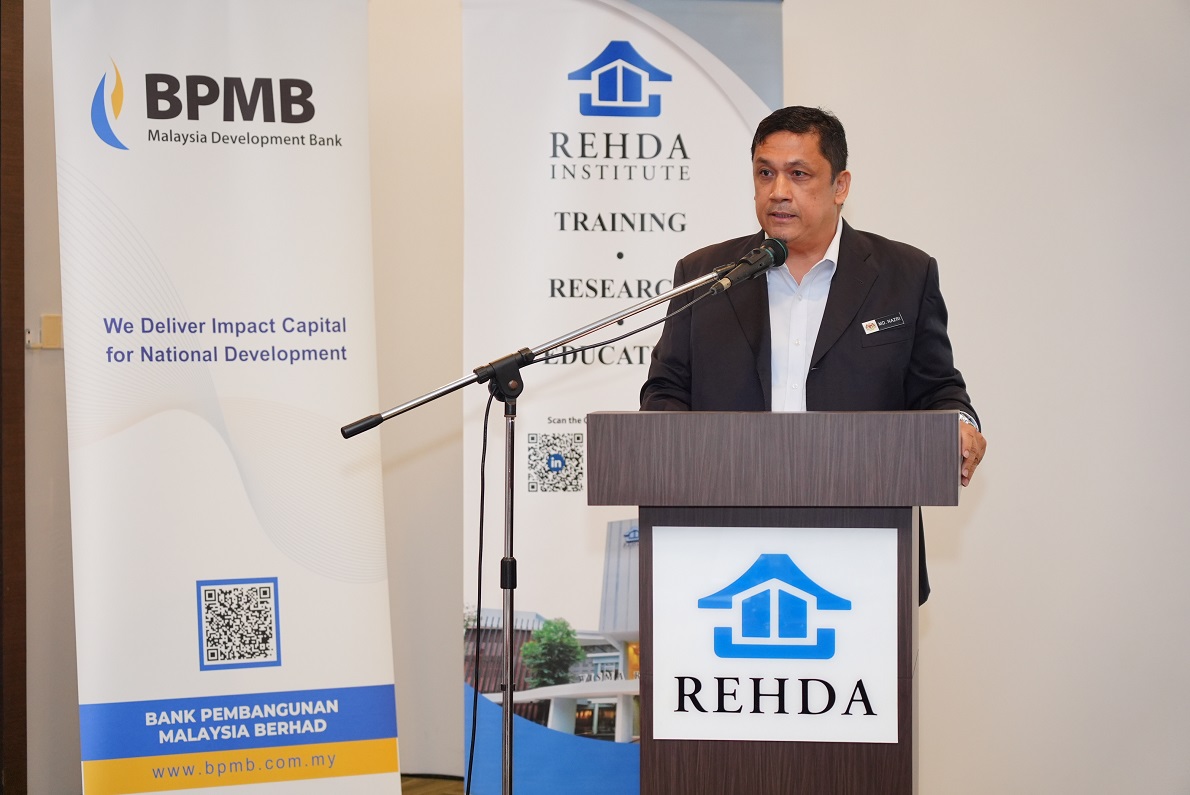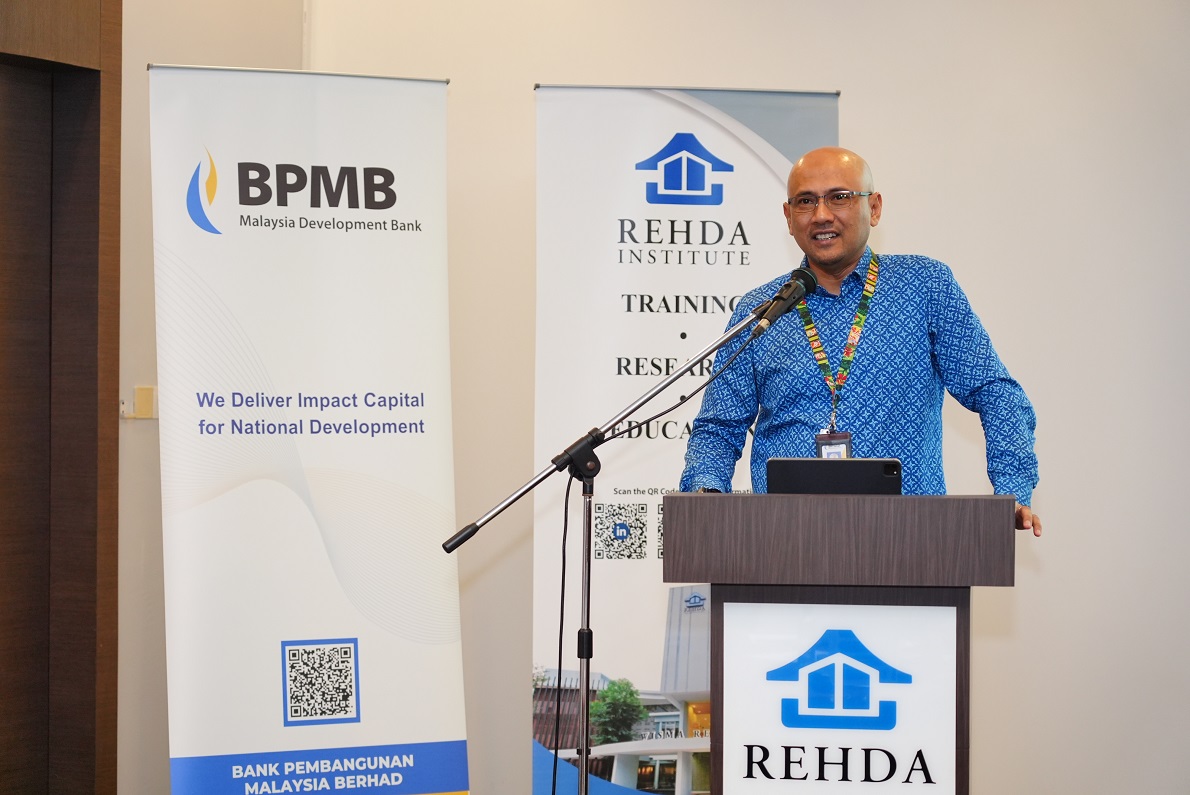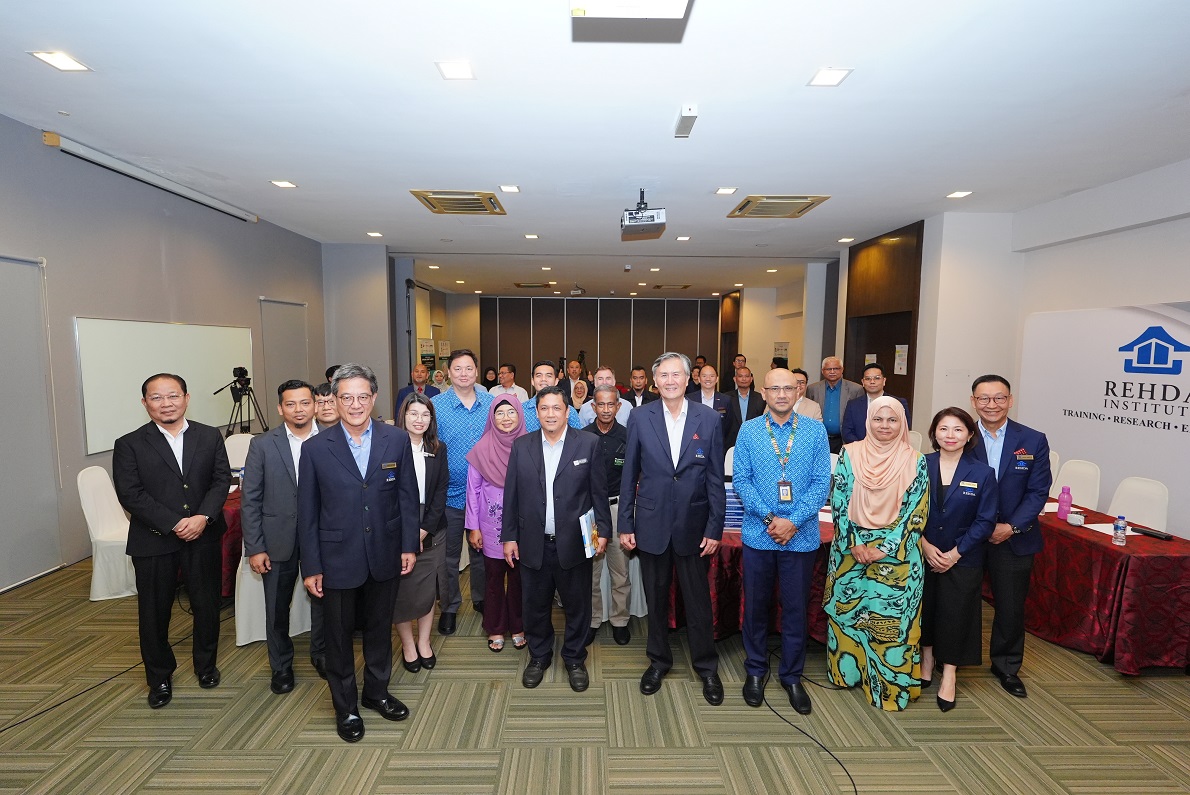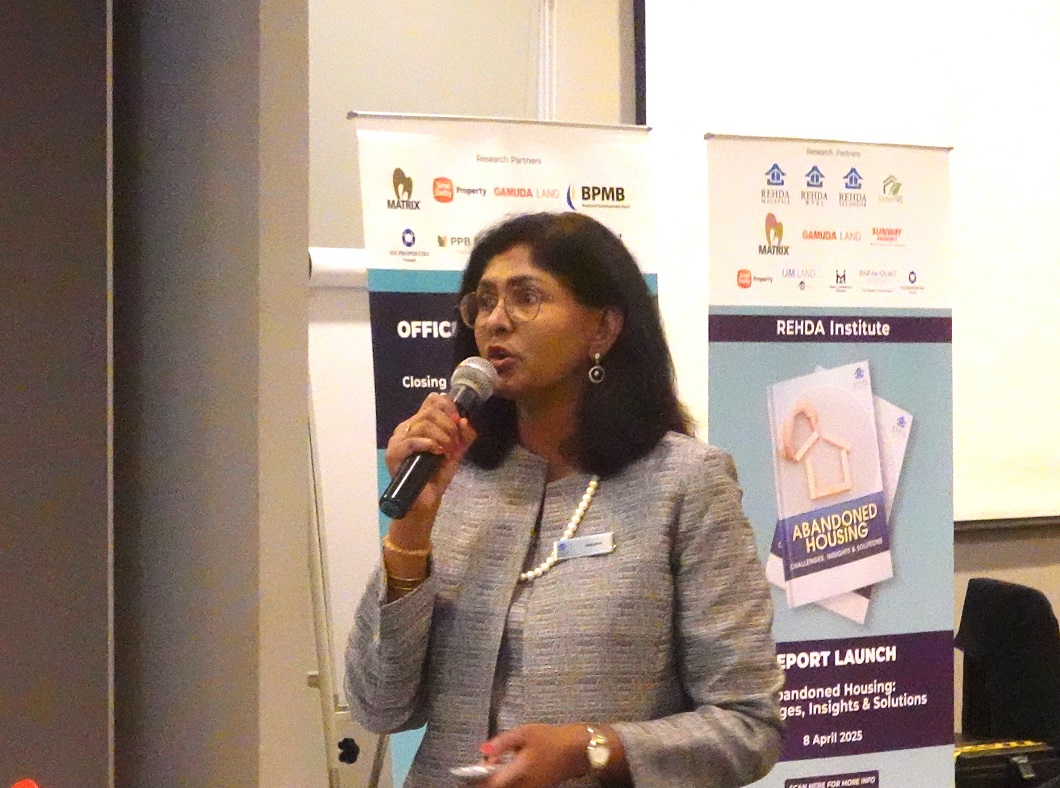Rehda Institute advocates owner-led model for urban renewal
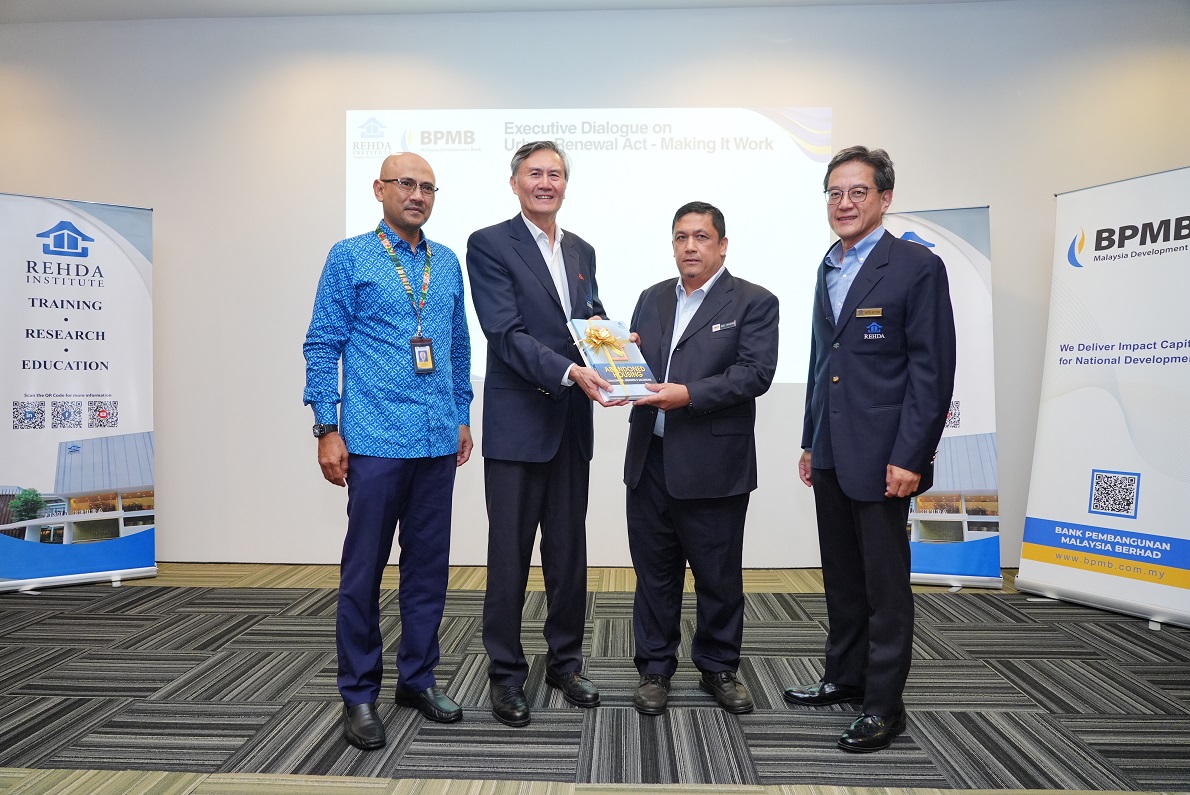
- “Developers are not the drivers of this process. Instead, developers can be brought in later to support the owners’ redevelopment initiatives.”
PETALING JAYA (June 5): The Real Estate and Housing Developers' Association (Rehda) Institute has called for an owner-led urban renewal model, backed by clear safeguards to prevent displacement and ensure fair compensation for the affected property owners in urban redevelopment.
The Rehda Institute, in partnership with Bank Pembangunan Malaysia Bhd (BPMB), hosted an executive dialogue entitled “Urban Renewal—Making it Work” at Wisma Rehda here last week.
The event brought together key government agencies, financial leaders, urban planners, architects, surveyors, and industry stakeholders to align strategies ahead of the forthcoming proposed Urban Renewal Act (URA), which will be tabled in June.
URA aims to empower owners to take lead in redevelopment
“Many of our cities and townships, especially those developed in the 1960s to the 1980s, are now confronted with outdated infrastructure, poor liveability, and socioeconomic challenges.
“Without strategic intervention, they risk further deterioration,” Rehda Institute chairman Datuk Jeffrey Ng Tiong Lip said in his welcoming remarks.
He said that the URA is meant to empower property owners to take the lead in initiating renewal efforts and determining how they wish to enhance the value of their existing assets.
“Developers are not the drivers of this process. Instead, developers can be brought in later to support the owners’ redevelopment initiatives,” he explained.
PLANMalaysia: Resident consent and welfare core to redevelopment plans
In his keynote address, Department of Town and Country Planning (PLANMalaysia) deputy director general (Planning) Md Nazri Abdullah addressed concerns regarding the displacement of residents.
“We must ensure that the affected owners could receive displacement accommodation at no cost, or have the option to stay within the redeveloped area itself.
“During the redevelopment phase, transit accommodation will be provided. This temporary housing, located either within the same area or at a reasonable distance, will be fully managed by the respective stakeholders,” he elaborated.
Nazri also said that there would be a critical technical assessment of all urban renewal areas. This includes conducting thorough site assessments based on technical evaluations to confirm the site's eligibility for urban renewal.
BPMB calls for inclusive financing in urban redevelopment
Meanwhile, BPMB group chief corporate development officer Mohd Fuad Ahmad highlighted the need for policy and financing ecosystems for urban renewal plans.
“Urban redevelopment must be driven by community needs, not just economic returns. It is our national priority, and it requires more than just planning.
“It needs a financial system that is inclusive and innovative, one that delivers tangible benefits for the public,” he said.
Rehda Institute's people-centric vision for urban renewal
In her presentation, Rehda Institute research & education director Malathi Thevendran pointed out that the URA compensation structure for affected property owners may vary, potentially including a cash payout equivalent to the market value or a replacement unit.
Cited from the proposed URA, Malathi said that a phased redevelopment approach may be adopted, where some blocks are completed first to relocate original owners before any demolition.
The government will take the lead in the redevelopment, facilitating a tripartite agreement among the owners, the government, and the developer.
The URA proposal also stated that the government will determine the areas for redevelopment, typically through executive committees chaired by the Housing and Local Government minister at the federal level, or the chief minister at the state level.
Compensation structure should be based on open market value
The dialogue also saw participants from both the public and private sectors, with several points on the URA brought up.
Different consent thresholds were discussed, ranging from 75% to as high as 90%, but there was universal agreement from the stakeholders on the need for a practical consent threshold.
Further discussions focused on compensation structures, specifically the open market value.
One of the participants highlighted that the compensation not only needs to include the property's value, but also any associated losses. For instance, if residents were offered replacement units, the compensation must take into account the potential expenses, like reasonable rental costs for temporary homes.
Another participant also stressed that fair compensation should be considered beyond individual properties.
“Compensation should cover not only replacing existing units but also the value of the redeveloped land, calculated based on the development's net cost,” the participant said.The participants also strongly advocate for transparent and open bidding processes for redevelopment projects. This ensures fairness for both residents and developers, promotes clear communication and mutual understanding.
Some suggested that developers involved in redevelopment plans must consider the long-term impact on vulnerable communities, ensuring they can thrive in the future new environments.
Does Malaysia have what it takes to become a Blue Zone, marked by health and longevity? Download a copy of EdgeProp’s Blueprint for Wellness to check out townships that are paving the path towards that.
Never miss out
Sign up to get breaking news, unique insights, event invites and more from EdgeProp.
Latest publications
Malaysia's Most
Loved Property App
The only property app you need. More than 200,000 sale/rent listings and daily property news.

